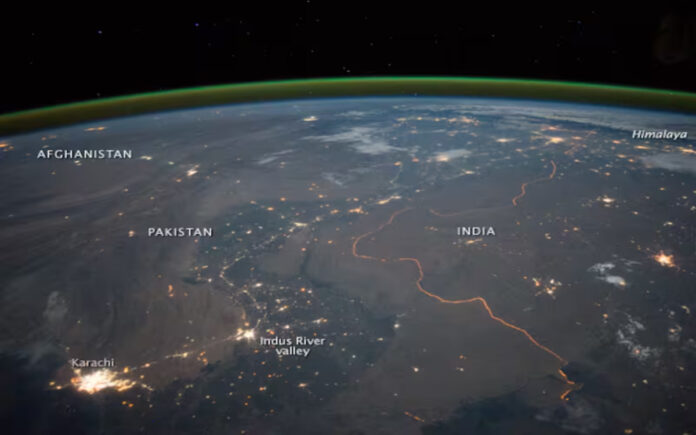New Delhi/Islamabad: A fragile ceasefire held between India and Pakistan on Sunday following four days of the most intense cross-border fighting seen in nearly three decades. The escalation between the nuclear-armed neighbors involved missiles, drones, and artillery fire, with military installations targeted and dozens of lives lost.
The latest flare-up, which erupted two weeks after a deadly attack on Hindus in Indian-administered Kashmir’s Pahalgam, pushed the region to the brink of a broader conflict. While diplomatic efforts—bolstered by pressure from the United States—managed to halt the hostilities temporarily, sporadic artillery exchanges resumed hours later in Indian-administered Kashmir, underscoring the fragility of the truce.
Residents in border towns described terrifying scenes over the past two evenings as air defense systems roared under citywide blackouts. In the Indian border city of Amritsar, known for housing the Golden Temple, sirens on Sunday morning signaled a return to cautious normalcy. Streets that had been deserted during nights of shelling slowly came alive.
Late Saturday, the Indian government accused Pakistan of violating the newly brokered ceasefire and warned of strong retaliation if hostilities resumed. Pakistan, meanwhile, reaffirmed its commitment to the agreement and placed the blame for violations on India. Officials in Pakistani-administered Kashmir reported minor firing in Bhimber but said no casualties had occurred.
By early Sunday, calm appeared to return on both sides of the border, and power was restored to many of the previously blacked-out Indian towns.
In a post on Truth Social, U.S. President Donald Trump welcomed the pause in fighting and indicated his intent to deepen economic ties with both nations. “While not even discussed, I am going to increase trade, substantially, with both of these great nations. Additionally, I will work with you both to see if… a solution can be arrived at concerning Kashmir,” Trump said.
The recent violence has left a death toll nearing 70, according to official sources. Though the ceasefire is holding for now, the underlying tensions remain deeply entrenched.
Also Read | IT Glitch Disrupts Operations at London Stansted Airport, Delays Flights and Strands Passengers
“Ever since the day terrorists attacked people in Pahalgam we have been shutting our shops very early and there was an uncertainty. I am happy that at least there will be no bloodshed on both sides,” said Satvir Singh Alhuwalia, 48, a shopkeeper in Amritsar.
India and Pakistan, both former British colonies, have fought three wars since gaining independence in 1947—two of them over the disputed region of Kashmir. While India accuses Pakistan of fostering militancy in its portion of Kashmir and supporting Islamist groups responsible for attacks across India, Islamabad maintains that it offers only moral, political, and diplomatic backing to Kashmiri separatists.
Also Read | Vast Seeks Indian Rockets for Crew Transport as It Plans Commercial Space Station
“More than me, my family is happy because my children and wife have been calling me every hour to check on me. Thank God the ceasefire happened,” Guruman Singh, a security guard in Amritsar, told Reuters.
As tensions simmer beneath the surface, the situation in Kashmir remains unpredictable, and global powers are watching closely for any signs of renewed conflict.



